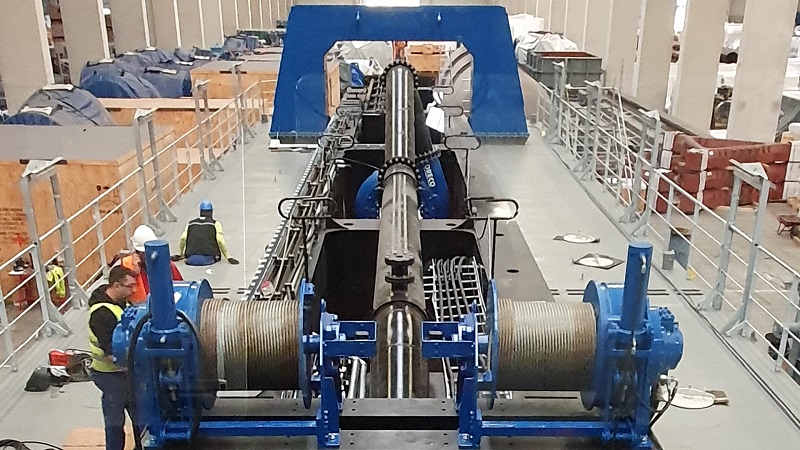It's a Jungle Out There
It’s a Jungle Out There
Harsh environments and saltwater properties tend to make it difficult for motors, gearboxes and engines to perform consistently at a high level. So, when challenges arise, manufacturers tend to gravitate toward cost-savings solutions that will make their jobs easier. Here’s a look at some applications in natural environments that have benefitted from component upgrades:
Vesconite Supports Airboats for Ecotourism

A company that specializes in African airboat ecotourism tours has switched to the hard-wearing thermoplastic Vesconite discs and holders as a support for the engine/gearbox — propeller system to ensure that its boats can cope with the rigors of an African boating experience.
The U.S. manufacturer had built the engine stands with nylon dampers encased in stainless steel tubes, explains Airboats Afrika Managing Director Chris Grosch. However, the result was a significant number of cracks in the tubes due to the constant vibrations and strain, which worried Grosch as his expeditions would often take him to hippo and crocodile-filled African rivers where it would be difficult to access maintenance facilities.
“We are not in the Everglades and you can’t whip out a cell phone and call a buddy,” he says of the ease of accessing help in the United States. “In Africa, you can’t do that. So then we worked out a concept of all kinds of things we deemed reliable,” he added.
Grosch’s engine-mounting solution was to make a metal cup holder into which a Vesconite disc is bolted, and on which the engine sits. Through these means, vibration was lessened and steel-on-steel wear was eliminated. Vesconite also provided the advantage of being dimensionally stable and resistant to saltwater, which were boons for the tour company, which had to chisel off salt off the original water-absorbing nylon support base in the past.
Since Africa does not have the deep navigable rivers that you find elsewhere, he opted for airboats, which can provide a cruising-type experience even in shallow waters. (www.vesconite.com)
Fish Farm Saves Energy with Motor Upgrade
A Denmark-based specialist in aquafeed production has replaced an aging, damaged DC motor on its principal extruder with a Dyneo motor from Leroy-Somer, part of the Nidec group. The investment is providing the company with significant annual savings in energy costs.

Aquaculture, more commonly known as fish farming, is a rapidly growing sector. Companies such as Aller Aqua, which produces both freshwater and saltwater fish feed, are constantly looking for ways to improve its production technology and processes to benefit from this growth.
The company has a broad product range, consisting of feed for 30 species of fish. As a result, production schedules are demanding, which is why the company sought to maximize its potential gains when the DC motor on one of the company’s main extruders at Christiansfeld had to be replaced.
“Aller Aqua had a particular interest in energy efficiency for its new motor solution as extruding feed stuff is a very energy-intensive process,” explained Carl Erik Niemann, sales engineer — drives and motors technology at Nidec Industrial Automation Denmark A/S. “They knew this would help boost both competitiveness and sustainable development.”
After a comprehensive evaluation of the market, the company opted for a 310 kW (2,400 rpm) Dyneo permanent magnet synchronous motor. Offering an efficiency level exceeding IE4 requirements, this option will enable the saving of at least 135,000 kWh of electricity per year.
“Beyond energy performance, Aller Aqua is now able to benefit from significant savings in maintenance costs, allied to increased machine availability,” said Niemann. “The previous DC motor featured a brush and collector system, which comprised wear parts.” (www.nidec.com)





